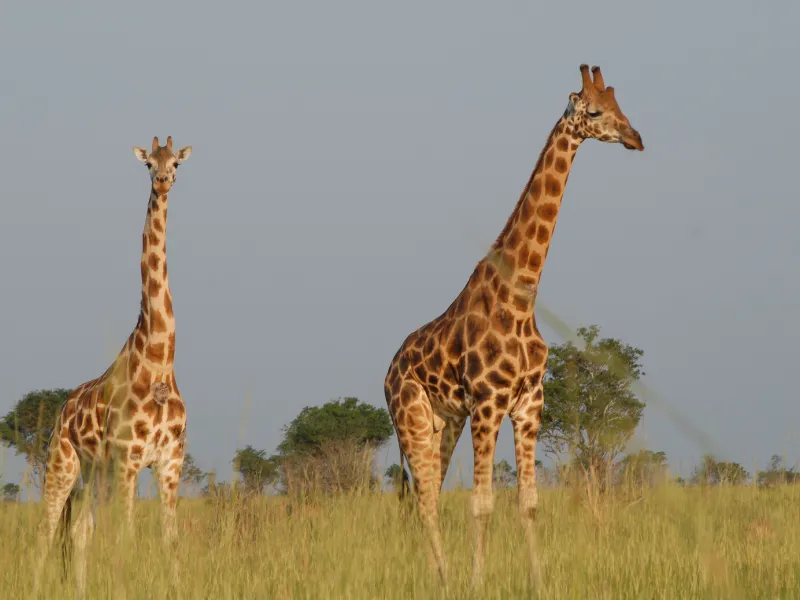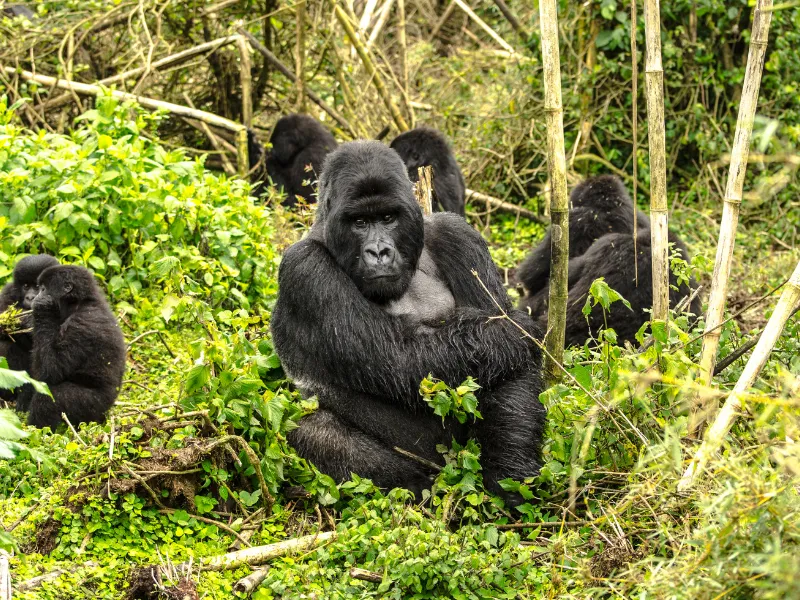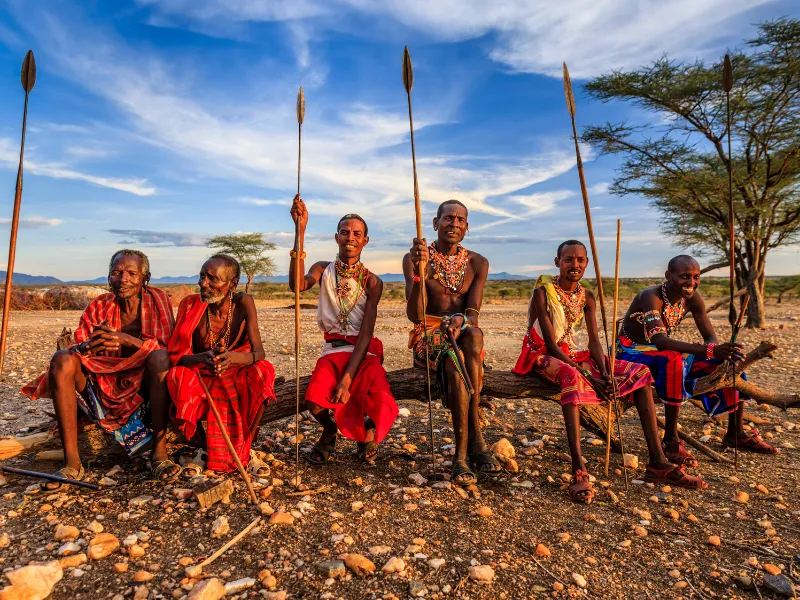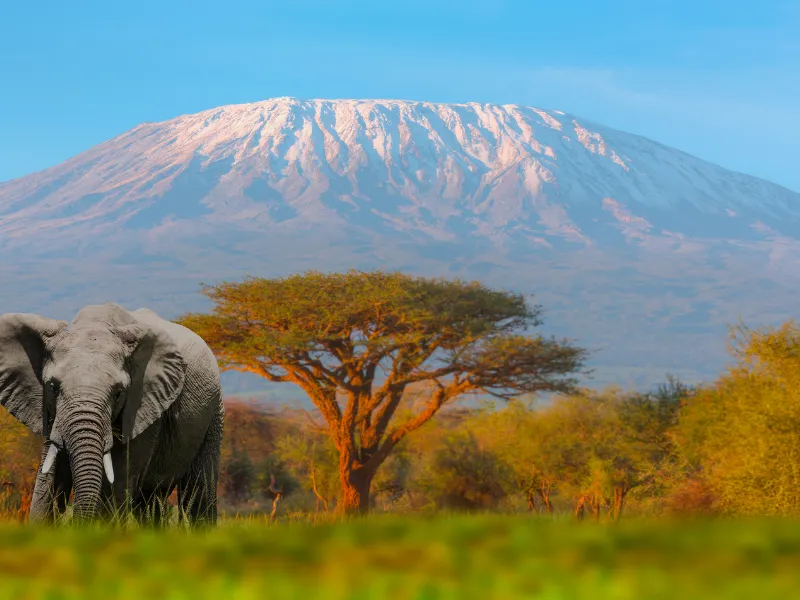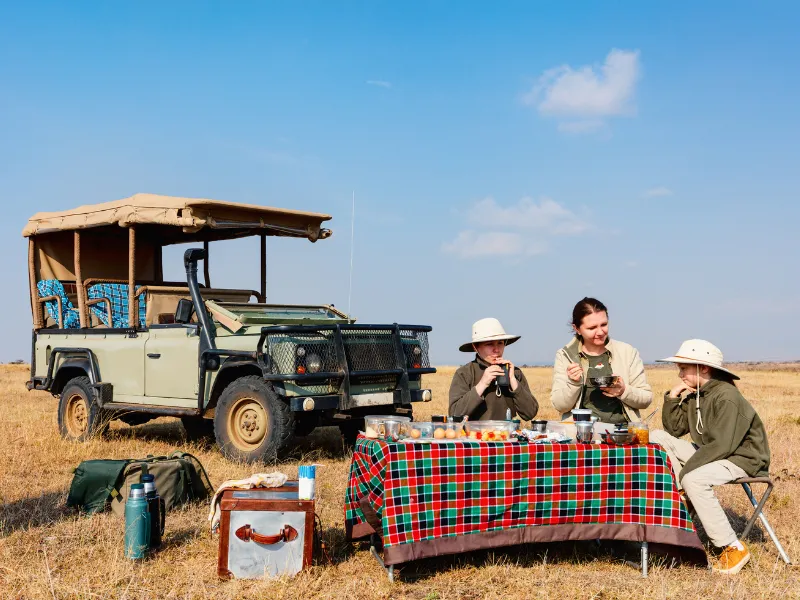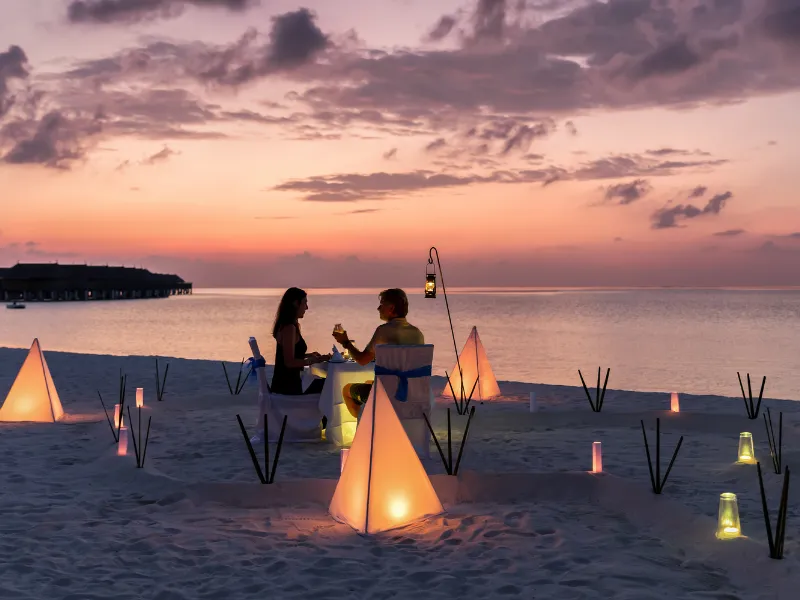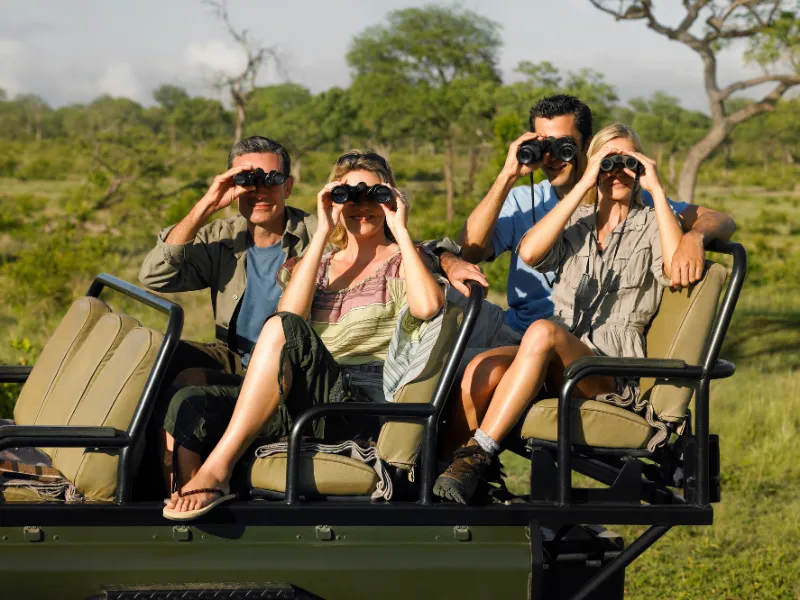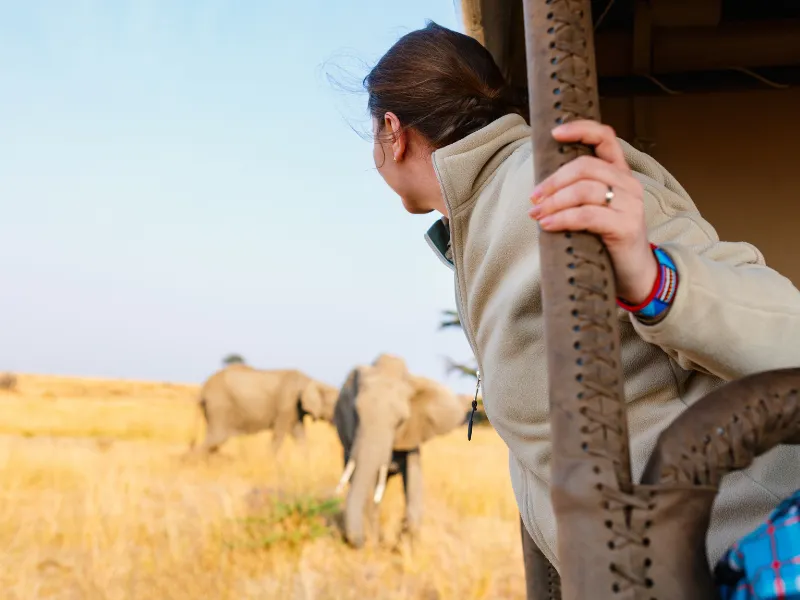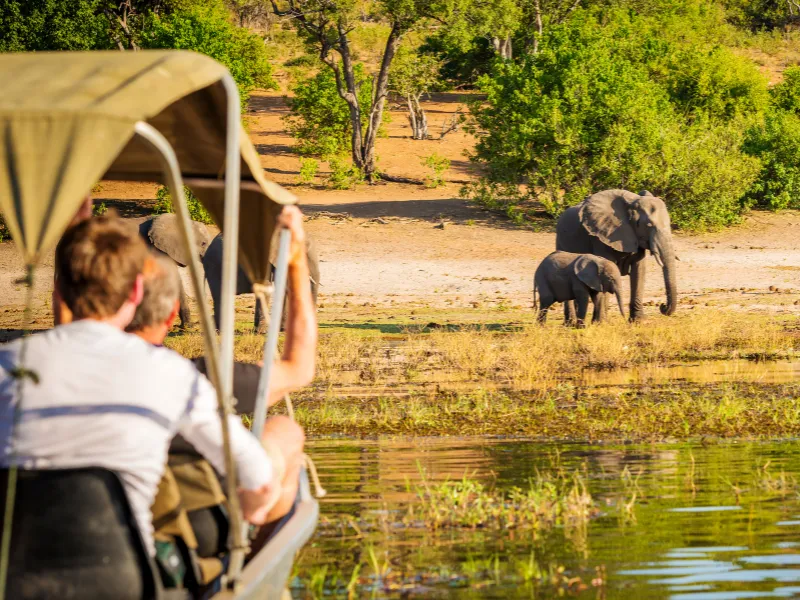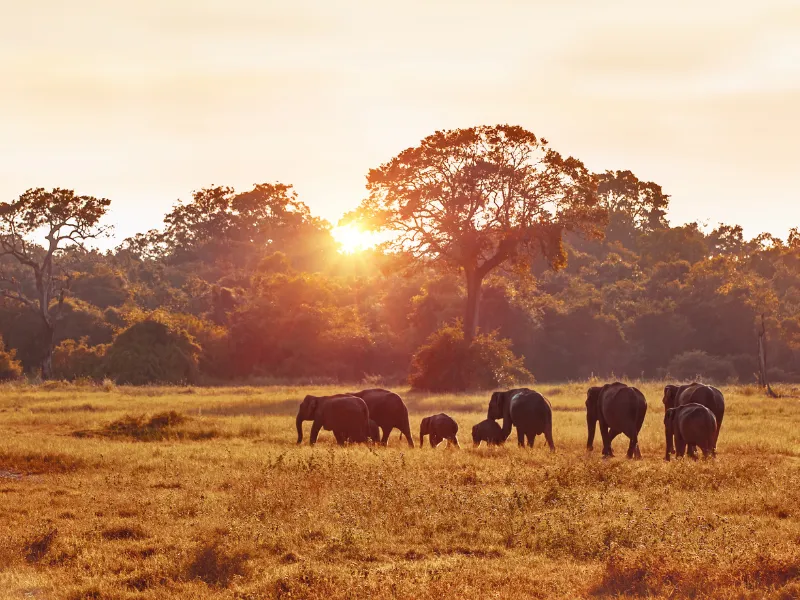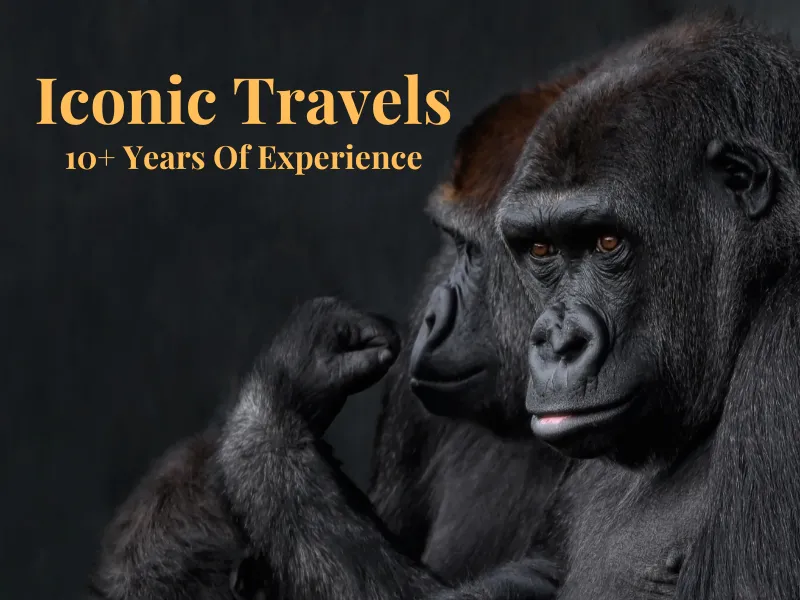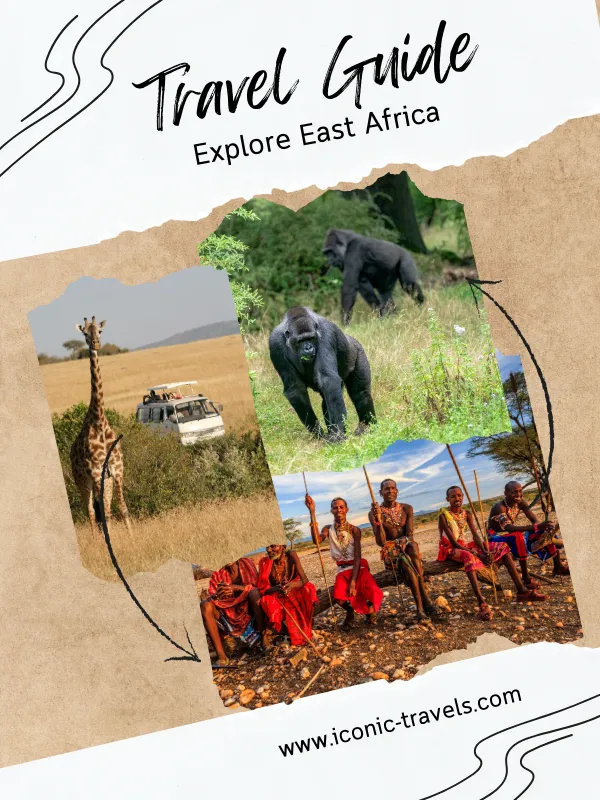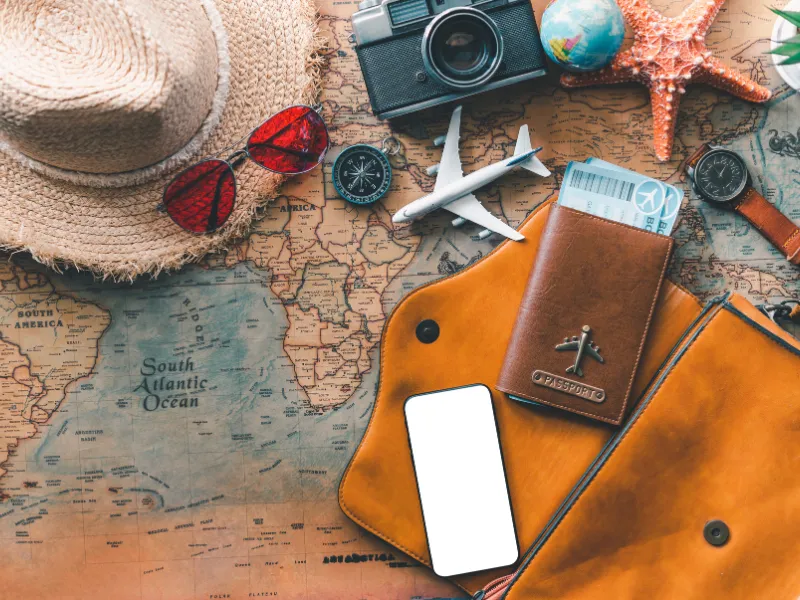Family Safaris
Annually, we expertly match over 100,000 proactive individuals seeking expertise in finance, lending, and claims management with experienced advisors and brokers.
Family Safaris: A Guide to Creating Safe, and Unforgettable Experiences for All Ages
Introduction: The Art of the Multigenerational Safari
A family safari stands as a rare and profound opportunity to connect with the natural world and with one another. It is a shared, transformative journey that can indelibly shape a child's worldview and create cherished memories for a multigenerational group. This report serves as a definitive guide to crafting such an experience—one that is meticulously designed to be safe, seamlessly structured, and engaging for every family member, from the youngest explorer to the most seasoned traveler. It moves beyond the simple logistics of booking a trip to address the deeper, more nuanced considerations that are essential for a flawless family adventure. A successful family safari is not merely a vacation; it is a finely tuned ecosystem of experiences where a sense of wonder, education, and deep family connection are nurtured in equal measure.
1. The Promise: Curating the Ideal Family Experience
The core of a successful family safari lies in its ability to deliver a "Wow for All Ages." This is achieved by moving beyond a one-size-fits-all approach to create a bespoke itinerary that acknowledges the varied needs and interests of a diverse family group. The ideal experience balances the thrill of high-octane wildlife encounters with a flexible pace that prevents exhaustion and allows for meaningful moments of rest and connection. This curated approach involves selecting child-friendly camps with guides trained to engage younger guests, choosing routes that are mindful of health considerations, and incorporating age-appropriate activities that go far beyond a standard game drive. The finest safari experiences for families are a synthesis of adventure and comfort, education and relaxation, ensuring that the journey is as rewarding for the child experiencing their first lion sighting as it is for the adult watching it all unfold.
2. The Intent: Addressing Key Family Considerations
Planning a family safari requires a strategic approach to several critical considerations that directly impact the safety, comfort, and enjoyment of all participants.
2.1. Age Policies and Safety: Navigating the Rules of the Wild
Age restrictions on safari activities are not arbitrary but are carefully designed to ensure the safety of both guests and wildlife, as well as to enhance the quality of the experience. Many lodges enforce a minimum age of 6 years for game drives to ensure children can handle the duration and the inherent unpredictability of a safari vehicle. Some camps, including Mahali Mzuri, permit children as young as 2 to stay at the lodge but require them to be at least 6 years old to join game drives. For children under 6, a private, closed vehicle must be hired at an additional cost. Similarly, Angama Mara welcomes children of all ages but requires a private vehicle for those aged 0-6 to ensure a flexible and personalized experience. The requirement for a private vehicle for younger children is a key measure that allows the family to dictate the pace of the drive, preventing potential disruption to other guests and ensuring that the experience is tailored to the child's attention span and energy levels.
The age restrictions become more pronounced for specialized activities. For walking safaris, the minimum age is often 12 years and above, with some camps like Chem Chem Lodge specifying a minimum of 16 years for children to join walking safaris. This higher age limit reflects the physical demands of tracking animals on foot and the maturity required to follow a guide's safety instructions in a close encounter.
The most stringent age policy applies to gorilla trekking, where a firm minimum age of 15 years is enforced in both Rwanda and Uganda, with no exceptions. This regulation is not merely for physical endurance but also for the maturity to remain calm and quiet in the presence of wild mountain gorillas and to follow a guide's strict protocols, which are paramount for the animals' welfare and the safety of the group.
A key point of consideration for families is the nature of unfenced camps, which are common in many of East Africa’s top luxury lodges. The notion of an unfenced camp can be unsettling for parents. However, this is a defining feature of an immersive safari experience, allowing wildlife to move freely through the property, offering guests unparalleled close-up sightings. Rather than being unsafe, these environments are managed by highly trained camp staff, known as Askari or security guards, who escort guests after dark and ensure children are never left unsupervised. This approach reframes the issue of safety from one of physical barriers to one of expert supervision and meticulous adherence to a camp’s guidelines.
2.2. Inter-leading Tents and Suites: The Perfect Family Hub
For families, the sleeping arrangements are a critical component of a successful safari. Inter-leading tents, family suites, and private villas offer the ideal blend of proximity and privacy. These accommodations allow parents to be close to their children while still having a separate space, ensuring a peaceful night's rest for everyone.
Lodges such as Angama Mara are celebrated for their interconnected Tented Suites, which feature an enclosed passageway that allows for safe movement between rooms at any time of day or night. Chem Chem Lodge offers a family tent with a main suite and a children's annex connected by a small wooden bridge, accommodating up to two adults and three children. Other properties like Clouds Mountain Gorilla Lodge, Sanctuary Gorilla Forest Camp, and Singita Serengeti House also provide family-specific accommodations or suites designed to accommodate multiple generations.
It is essential to note that these accommodations are limited and are often the first to be booked, particularly during peak seasons. Therefore, families must plan and reserve their trips well in advance to secure these specific room types.
2.3. Malaria-Lite Regions: A Health-Conscious Approach
Malaria is a health concern for many travelers to East Africa, particularly those with young children for whom certain prophylactics may not be suitable. However, the risk varies significantly by geography and season, and a careful approach to planning can mitigate much of the risk.
Higher-altitude areas, which are cooler and drier, typically have a lower incidence of malaria. Notable examples include the Virunga Mountains in Rwanda, the Laikipia Plateau in Kenya, and the Ngorongoro Conservation Area in Tanzania. The altitude in these regions creates an unfavorable climate for mosquitoes, making them a preferred choice for health-conscious families. Similarly, the dry season, which runs from June to October, sees a general decrease in mosquito populations across East Africa, further reducing the risk of transmission.
However, even in lower-risk areas, a comprehensive approach to prevention is essential. All travelers are advised to consult a medical professional about appropriate antimalarial medication. Lodges will provide mosquito nets, and guests are encouraged to wear long sleeves and pants in the evenings and use a high-quality insect repellent containing DEET. This proactive strategy transforms malaria from a trip-altering fear into a manageable health consideration.
2.4. Teen-Specific Activities: Engaging the Next Generation
For families with older children and teenagers, an itinerary must include activities that are physically and intellectually stimulating. While game drives are a core component, a successful teen-friendly safari integrates more active and educational opportunities.
Lodges like Ol Pejeta Bush Camp and Mahali Mzuri offer dedicated programs that provide a more hands-on experience. Ol Pejeta's "Junior Ranger" program and opportunities to visit the anti-poaching canine unit or track lions with researchers are a powerful draw for teens interested in conservation. Mahali Mzuri, on the other hand, provides activities such as a "Tracking Skills Treasure Hunt," archery, and spear- and club-throwing lessons, which foster a sense of adventure and cultural connection.
For the truly adventurous, Uganda offers a unique array of adrenaline-pumping activities, particularly in Jinja, the self-proclaimed "Adrenaline Capital of East Africa." These include whitewater rafting, kayaking, and bungee jumping, which are ideal for older children and teens who crave more than just wildlife viewing. These diverse offerings ensure that a safari can be an adventure, a hands-on learning experience, and a physical challenge all at once.
3. Family Essentials: A Practical Guide
This section provides a practical checklist of essential considerations for a seamless and comfortable family safari.
3.1. Health & Vaccinations
Prior to travel, a consultation with a travel doctor is strongly recommended to discuss destination-specific health requirements. The Yellow Fever vaccine, for example, is mandatory for entry into many East African countries, and a valid certificate must be presented upon arrival. Routine vaccinations such as Hepatitis A and B and typhoid should also be considered. Beyond vaccinations, it is critical to pack a basic medical kit with essential items like aspirin, bandages, and an antiseptic cream, as well as any necessary prescription medications, which should be kept in their original packaging. Hydration and sun protection are also crucial, as the equatorial sun is strong even on cool days.
3.2. Transport & Comfort
Travel with young children on safari often involves a combination of ground transfers and flights in small, unpressurized aircraft. These small planes, which seat anywhere from 4 to 20 passengers, are a fantastic way to appreciate the scale of the landscape and the abundance of wildlife from above, effectively turning a transfer into an aerial safari. However, they can be cramped and potentially uncomfortable for very young children. To mitigate this, travel can be planned to limit the number of flights and to build in ample time for rest between travel days. Many top-tier lodges have their own private airstrips, which significantly reduces transfer times and the stress of long drives.
3.3. Private Vehicles: The Ultimate Family Tool
A private safari vehicle is arguably the single most important investment for a family safari. While many lodges offer shared vehicles, reserving a private car and guide provides unparalleled flexibility, which is the key to a stress-free experience with children. With a private vehicle, the family can set their own schedule, from departing before sunrise to returning to the lodge for a nap or an unscheduled bathroom break without disrupting other guests. This freedom allows the family's day to be dictated by their own rhythm rather than a rigid camp schedule.
A private vehicle also allows a guide to dedicate their full attention to the family, answering children's questions, spotting wildlife tailored to their interests, and ensuring safety in a hands-on, personalized manner. This is why many lodges either highly recommend or even mandate a private vehicle for families with children below a certain age, such as 6 or 8 years. The private vehicle is the mechanism that transforms a safari from a shared tour into an intimate, bespoke family adventure.
4. Best Months and School Holidays: Aligning Travel with Experience
The timing of a family safari can have a significant impact on wildlife viewing, crowd levels, and overall experience. The travel calendar in East Africa is generally divided into two main seasons: the dry season and the wet season, each offering unique opportunities for families.
The dry season, which runs from June to October, is widely considered the prime time for a traditional safari. This period aligns perfectly with summer school holidays in the Northern Hemisphere. During these months, vegetation is sparse, and animals congregate around permanent water sources, making them easier to spot. This is also the period for the Great Migration's dramatic Mara River crossings, a breathtaking spectacle that occurs in the Masai Mara in Kenya and the northern Serengeti in Tanzania. However, this is also the high tourist season, meaning lodges are at full capacity, prices are highest, and popular sightings can be crowded with vehicles. For families who want to experience the migration without the crowds, a strategic choice of a private conservancy or a mobile camp is highly recommended.
An equally compelling option is to travel during the calving season, which occurs from December to February and coincides with winter school holidays. During this time, the great wildebeest herds gather on the short-grass plains of the southern Serengeti, and over half a million calves are born in a synchronized burst of life. This season offers a more serene, uncrowded experience with intense predator activity as lions, cheetahs, and hyenas patrol the nursery herds. The weather is also generally good, with short rains bringing lush, green landscapes that are ideal for photography. This season is particularly well-suited for families with young children, who are often captivated by the sight of newborn animals.
5. Top Kid-Friendly Lodges: A Curated Review
The success of a family safari is heavily dependent on the choice of accommodation. The following lodges and camps are celebrated for their commitment to providing a safe, engaging, and unforgettable experience for families.
Comparative Guide to Family-Friendly Lodges
| Lodge Name | Region | Minimum Age | Key Amenities & Activities | Private Vehicle Policy |
|---|
Angama Mara, Kenya: Perched high on the Oloololo Escarpment, Angama Mara is renowned for its iconic views of the Masai Mara and a deeply personalized, flexible experience. Children of all ages are welcome, and the lodge offers a variety of amenities to cater to families, including interconnected suites with a safe, enclosed passageway. The lodge’s family program includes a "Walk with a Warrior" experience, beading sessions with local Maasai women, and a "Junior Ranger" course, all designed to engage young guests in a meaningful way.
Mara Plains Camp, Kenya: Located in the private Olare Motorogi Conservancy, Mara Plains Camp is a premier destination for exclusivity and exceptional guiding. The camp welcomes children aged 8 and older, and offers a designated family suite that includes two bedrooms and a shared lounge area. A standout feature for older children and photography enthusiasts is the professional Canon camera and lens kit provided in each tent for guests' use.
Ol Pejeta Bush Camp, Kenya: This camp is an ideal choice for families seeking a malaria-lite environment and a focus on rhino conservation. It welcomes children as young as 5 and offers a family tent with two en-suite bedrooms and a shared living area. The camp’s "Junior Ranger" program and opportunities to visit the endangered species enclosure to see the last two northern white rhinos are particularly compelling for young conservationists.
Chem Chem Lodge, Tanzania: Located on a private wildlife concession between Tarangire and Lake Manyara, Chem Chem offers a "slow safari" experience focused on walking safaris and cultural immersion. The main lodge welcomes children aged 4 and older, but children under 16 cannot participate in walking safaris. A unique family tent features a main suite connected to a smaller annex by a bridge, and children can participate in activities like learning bush survival skills from Maasai warriors.
Mahali Mzuri, Kenya: This luxury Virgin Limited Edition camp in the Olare Motorogi Conservancy is known for its bespoke, unscripted approach to family travel. The camp welcomes children aged 2 and older, though game drives are reserved for those aged 6 and above unless a private vehicle is booked. Activities are tailored to each child's interests and can include a "Tracking Skills Treasure Hunt" and archery lessons, which provide an active alternative to game drives.
Ndutu Safari Lodge, Tanzania: Situated in a prime location for the calving season in the southern Serengeti, Ndutu Safari Lodge is a perfect base for families. The lodge offers family chalets and is noted for its fenced grounds, which provide an added layer of security for families with young children and allow for a more relaxed experience.
Singita Serengeti House, Tanzania: For the ultimate in privacy and luxury, Singita Serengeti House is an exclusive-use private villa in the Grumeti Reserves. It welcomes children of all ages, and with a private guide, chef, and vehicle, the entire itinerary can be fully customized to the family's wishes. The property offers a dedicated "Mini Rangers Course" and a wide range of activities, from cooking interactions to tennis, making it an ideal choice for a large family or multi-generational group.
Clouds Mountain Gorilla Lodge, Uganda: While gorilla trekking itself has a minimum age of 15, Clouds Mountain Gorilla Lodge in Bwindi welcomes children of all ages. The lodge offers family suites and provides special activities for younger children who are not old enough to trek, such as art projects, drumming lessons, and games with local village children.
Sanctuary Gorilla Forest Camp, Uganda: This luxury tented camp in Bwindi is famous for its location, where gorillas sometimes wander directly through the camp. The camp welcomes children of all ages, though the gorilla trek is restricted to those 15 and older. It also offers child reduction rates for ages 3-15, and all rooms can be converted into triples, making it a flexible option for families.
Villa Rentals/Exclusive-Use Camps: For families or groups seeking a completely private experience, renting an entire camp or villa is the most effective solution. This option removes all typical age restrictions for activities and provides an itinerary that can be fully customized, from meal times to game drive durations. Properties like Singita Serengeti House exemplify this model, offering total exclusivity with a dedicated staff and private amenities.
6. Pacing & Activities: Beyond the Game Drive
A successful family safari is defined by a flexible itinerary that balances the traditional game drive with a variety of other engaging activities. The aim is to create a rhythm that keeps children excited without leading to exhaustion.
Game drives should be paced with children's attention spans in mind. A typical day can include a shorter morning and afternoon game drive of 2–3 hours each, with a flexible return time. This structure allows families to return to the lodge for a midday break, which can include a nap, a swim, or quiet time. Many lodges offer a dedicated kids’ program during these midday hours, with activities like nature walks around the camp, tracking lessons, and bow-and-arrow practice.
Evenings should be a screen-free opportunity for family bonding. Many camps offer campfires, storytelling sessions with Maasai warriors, and stargazing, which turns an ordinary night into a celestial wonder.
For a complete family itinerary, the safari can be combined with other experiences. Following a few days of game drives, a retreat to Rwanda’s serene Lake Kivu offers a change of pace with activities like sunset cruises and kayaking. Similarly, a beach extension to Zanzibar provides a chance to unwind, with options like a stay at the luxurious Mnemba Island Lodge, a private island escape with a focus on marine life and water sports.
7. Packing & Vaccination Tips: The Essential Checklist
Proper preparation is key to a comfortable and safe family safari. This checklist provides a summary of essential items to pack and health-related steps to take.
Packing for Comfort:
Clothing: Pack light layers in neutral tones such as khaki, brown, and green. A fleece or sweater is essential for cool mornings and evenings on game drives. Long sleeves and trousers provide protection from the sun and insects.
Footwear: Sturdy, worn-in hiking boots or comfortable walking shoes are critical for trekking and walks around the camp. A pair of sandals or lightweight shoes is also useful for downtime at the lodge.
Gear: A wide-brimmed sun hat, sunglasses, and high-quality binoculars are essential. A camera with plenty of memory cards and extra batteries is a must for capturing memories. A small daypack for carrying water, snacks, and personal items is also recommended.
Luggage: It is crucial to use soft-sided duffel bags as many small aircraft have strict luggage weight limits (often 15 kg/33 lb) and can only accommodate flexible baggage.
Health & Safety Preparations:
Vaccinations: A consultation with a travel health professional is advised to ensure all routine vaccinations are up-to-date. The Yellow Fever vaccine is a mandatory requirement for entry into many East African countries.
Medication: Discuss antimalarial prophylaxis with a doctor, as malaria is a risk in most safari areas, though the risk varies by altitude and season. All prescription medications should be carried in their original packaging, and a basic first-aid kit is recommended.
Protection: Use a high-quality insect repellent containing DEET, and wear long sleeves and pants after sunset to prevent mosquito bites. Sunscreen and a lip balm with SPF are also essential for protection against the strong equatorial sun.
Ready to Explore More?
Our travel experts are ready to start creating your customized trip.
Destinations
Company
Follow Us
© 2026 Iconic Travels. All Rights Reserved.

